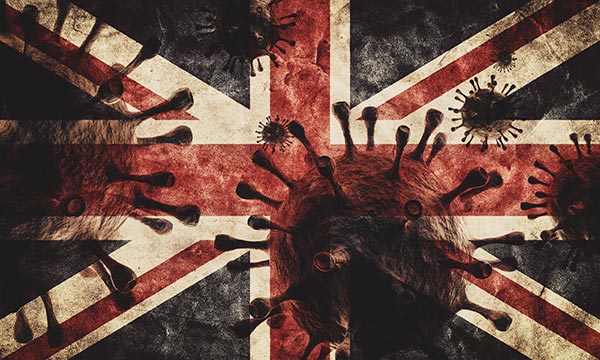
Advertisement
Health officials have confirmed that the U.K.’s death toll from the Wuhan coronavirus (COVID-19) has passed 50,000. The tally came 10 weeks after Britain went into lockdown and confirmed its status as one of the countries worst hit by the global pandemic.
The U.K.’s death toll is now higher than that of other European countries that have been hit hard by the coronavirus such as Italy, France and Spain. Worldwide, only the United States has had more fatalities, according to data from Johns Hopkins University.
Britain hits its worst-case scenario
According to the Office of National Statistics (ONS), the number of deaths registered in England and Wales from suspected COVID-19 cases reached 44,401 by May 22. But when more recent figures from the National Health Service (NHS), as well as statistics from Scotland and Northern Ireland, were factored in, the count rose to 50,032.
ONS data says that 64.2 percent of all the deaths recorded since the pandemic started occurred in hospitals. Meanwhile, 12,739 deaths, more a quarter of the total, were recorded in care homes.
The grim number surpasses projections by some of the government’s own advisers.
Back in March, Government Chief Scientific Adviser Patrick Vallance said that keeping deaths below 20,000 would be a “good outcome.” Then, in April, the government stated that its worst-case scenario would be 50,000 deaths, according to Reuters.
Death toll includes excess deaths
Unlike the daily death toll published by the Department of Health and Social Care, Tuesday’s death certificate figures include both confirmed and suspected cases of COVID-19. These include “excess deaths” that may be associated with the virus. The Health Department’s count of 39,045, on the other hand, only counts confirmed COVID-19 cases. (Related: “Excess deaths” hint at a much higher coronavirus death toll than official numbers admit.)
According to public health experts, excess deaths — those from all causes that exceed the five-year average for a specific time of year — are the best way of gauging the mortality from an outbreak like the coronavirus pandemic.
Even as the figures confirm that the death rate has reached its lowest level in the last seven weeks, overall mortality in England and Wales for the year has so far been running at 22 percent above the five-year average.
April was particularly bad; this month was when the virus peaked in the country. Separate ONS figures published Tuesday showed that the provisional number of deaths registered in England and Wales was double the number recorded in 2019. The 88,153 figure for April represented an increase of 38,430 deaths compared to March.
In England, the northeast and east are the areas where coronavirus is still having the greatest impact, compared to normal years. The death tolls in these regions are 30 to 40 percent higher than the five-year average, respectively.
Scotland, on the other hand, has recorded 3,779 deaths where coronavirus was mentioned in the death certificate, according to National Records of Scotland data. Meanwhile, Northern Ireland recorded 716 COVID-19-related deaths in all settings, according to the Nothern Ireland Statistics and Research Agency.
Boris Johnson’s government criticized for death toll
The 50,000 death toll has prompted criticism of U.K. Prime Minister Boris Johnson and his government. Opposition parties have questioned Johnson’s government on several fronts.
One criticism is that the U.K.’s lockdown came too late, when it was introduced on March 23. Former Government Chief Scientific Adviser David King said that every day that the lockdown was not in place “cost lives.”
On top of this, health care workers faced weeks of shortages of personal protective equipment, such as masks and gowns, required to slow the spread of infection.
Johnson’s government has admitted that it might have made some mistakes. However, it also stressed that the government made measures to ensure the NHS was not overwhelmed despite facing the country’s biggest public health crisis since the 1918 Spanish flu outbreak.
Despite this, some U.K hospitals, including those in London, had trouble coping with the nation’s surge in coronavirus patients.
Sources include:
Advertisement
Advertisements
















